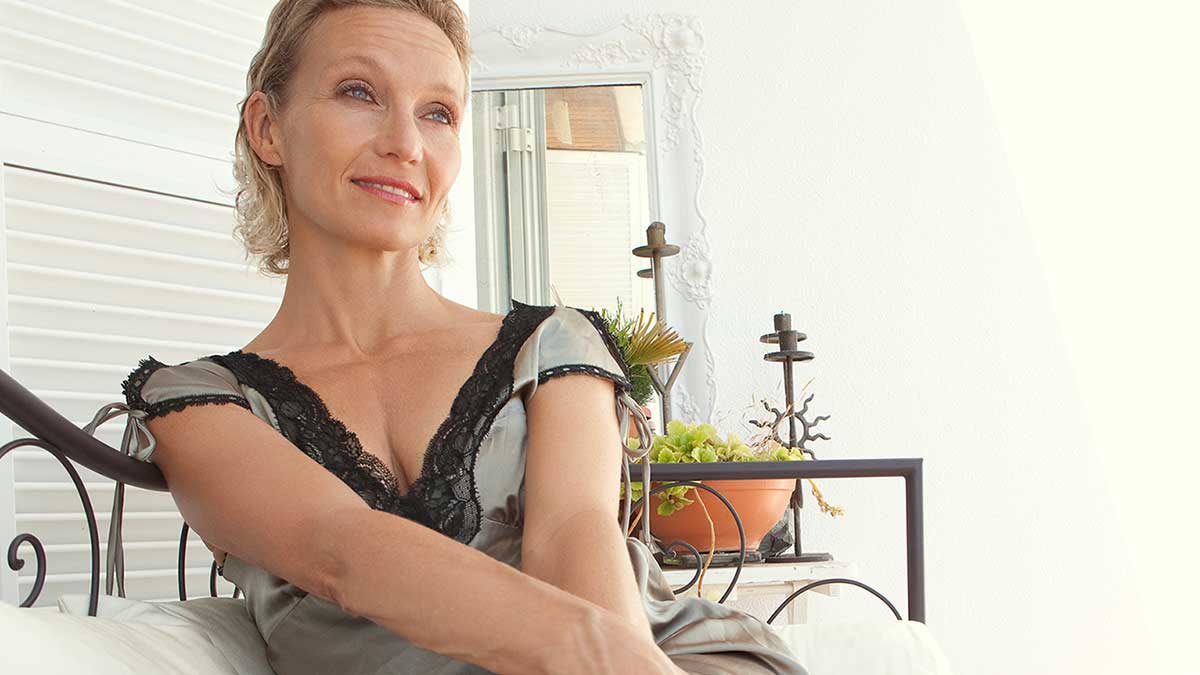Insights from researchers on a joint Victorian and New South Wales study have debunked many stereotypes about sex and older women. The study, Sex, Desire and Pleasure: Considering the Experiences of Older Australian Women, has found that the sexual desires of many women in their 60s, 70s and 80s actually increases, and that older women know what they want from a sexual partner and are more confident about expressing their desires.
It seems that once women are free from the exhausting day-to-day routine of family life and no longer have to worry about pregnancy, they become more enthusiastic about their sexuality. They also have a greater need for the benefits of a satisfying sex life.
“Some women did experience that kind of gradual decline, particularly as they went through menopause, [however] for other women they experienced a great increase in sexual desire. For a lot of women their sexual desire was quite fluid across their lives,” says Dr Bianca Fileborn, of La Trobe University’s Australian Research Centre in Sex, Health and Society.
“A lot of women have periods in their lives, for example when they had young children, when they weren’t all that interested in sex, presumably because they were exhausted. So it wasn’t that linear decline, it’s something that ebbs and flows across the life span.”
The study’s findings have clear implications for health professionals who should consider more closely the sexual needs of older people, including more information about medications that may interfere with sexual function, and counselling for those who undergo procedures, such as prostate surgery, and how they may affect a patient’s sex life.
The researchers also found that many older women were keen for their partners to expand their sexual repertoire. Due to various health issues associated with ageing and menopause, many of the study’s participants also expressed a desire to engage in more non-penetrative sexual activities.
The study highlights the need for health practitioners to broaden their own repertoires, to include discussions of alternative forms of pleasure for older women.
It also raises issues that confront an ageing society in which many will increasingly enjoy good health and longer lives. Contrary to the myths: older people can still be sexually active.
Read more at The Age
Opinion: It gets better with age
Okay, so many young people don’t want to think about their parents having sex – let alone their grandparents. Does that make it right to completely ignore the fact that they may be hot-blooded lovers in the sack? If I’m being honest, I don’t know how to answer that question.
I’m a big believer in people keeping what happens in the bedroom (or any other room) to themselves. People’s sex lives are their own business. We shouldn’t kiss and tell.
That doesn’t mean I think sex should be a taboo subject – far from it. After all, sex is quite possibly one of our two most important biological functions. Sex and eating. Maybe eating comes first, because you need energy for sex. Either way, it’s important.
The most important function of a health professional’s job is to maintain, or improve, quality of life for their patients. So it is imperative that the sex life of a patient is included in that ‘quality of life’ equation.
Indeed, the sex education we had as teenagers should be relayed again later in life.
This study makes huge leaps into the otherwise under-resourced, often misunderstood area of the sexual issues associated with ageing. I find it strangely comforting that older people are still having sex. If sex is like a fine wine that gets better with age, then we’re all in for a treat.
What do you think? Are you still sexually active? Do you have any suggestions for others who may be a little shy about their sexuality? Why not share them? (Just keep it clean please!)

